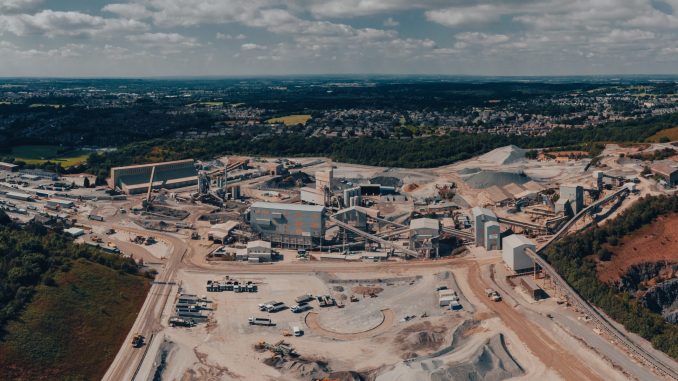
If you are looking to buy raw land, it is helpful to understand what the process is like and what steps you need to take before investing. This guide will walk you through the process of developing a piece of property into a usable space for your business or home.
Survey the land.
It is important to survey the land before you buy it so that you can be sure that what you’re buying is what’s being sold. When surveying, look for things like:
- The presence of trees, buildings, and other structures on the land. If there are any of these things on your property, they may reduce its value by as much as half. You’ll also have to remove them if they’re taking up space or otherwise impeding development plans.
- An elevation map showing hills and valleys about surrounding areas (this can help determine how easily accessible your property will be by road).
Surveying
Surveying is a specialized field, and surveyors are trained to measure and map land. It involves the use of specialized tools and techniques to measure distances, angles, and elevations. One such tool is a total station, which is a combination of an electronic distance meter (EDM) and an angular measurement device. Construction companies rely on surveyors to provide accurate measurements of a site before they begin work on any building or road construction.
Check for health hazards.
Before you begin to develop your raw land, it’s important to make sure that it’s not contaminated with hazardous materials. This can include asbestos, radon, mold, and lead. Your environmental consultant will be able to help you determine whether or not your property has any of these potential health hazards and provide advice on how to best manage them if they do exist.
Understand the requirements for developing the land.
Before you get too excited about buying raw land, it’s important to understand the requirements for developing that land. Before you can build on or develop your property, several things must be taken into consideration. The first question is whether or not the property is zoned appropriately. Zoning refers to the classification of residential and commercial properties based on their potential use and how they should be used by local communities.
Property may also have other legal restrictions placed upon it by government agencies like conservation agencies or environmental protection boards that restrict certain activities taking place within a particular area around rivers and wetlands, for example. In addition, some types of development may require an environmental impact assessment (EIA) before they can proceed with their projects due to potential impacts on wildlife habitat or endangered species in surrounding areas (for example).
To legally construct buildings such as homes or businesses on certain types of urban land (such as in dense urban centers), developers often need access rights from city planners ahead of time because these types of projects often require removing trees before building begins.
Construction
Once you’ve approved the design, the next step is to get construction started. This is a complex process, and getting it right the first time will save you money in the long run. Hire a professional like this demolition and excavation in Sydney to help with both design and construction before moving forward.
If you hire an architect or designer who specializes in raw land development, they’ll be able to guide you through all of these steps, including:
- Site analysis
- Topographical survey
- Preliminary grading plan
Get a second opinion on the land and its potential uses.
Before you buy, get a second opinion on the land and its potential uses. Don’t rely solely on your ideas about what might work there. Get opinions from others who have experience in the industry, including:
- A professional landscaper or architect to analyze the site and make recommendations regarding zoning, drainage, and soil quality issues. They can also help you map out a floor plan that maximizes usable space while respecting any restrictions on use (such as building setbacks).
- A friend who has done similar projects before (for example, building an addition or converting a garage into an office). Their first-hand knowledge can be invaluable when it comes time for decision-making down the road.
- Your family members if they’ve lived near where you’re looking at buying property for some time already—may know of other sites similar to yours that could offer helpful insight into what might work well about future development plans for both residential homes as well as commercial businesses like retail stores or restaurants.
Find out about building codes and other legalities.
As you are likely aware, building codes are laws that specify the minimum requirements for new buildings. Building codes are set by the state, county, and city governments. They’re enforced by local building inspectors, who will inspect your home and make sure it meets these standards before issuing a permit to occupy.
Uncover any hidden costs for developing the land.
When you develop raw land, you must consider all of the costs involved. Developing raw land can be expensive because it involves multiple parties and a lot of planning.
The costs of developing raw land will vary depending on the size, location, and uses of the land. Some potential costs include:
- Legal fees
- Inspection fees
- Permitting fees
- Surveying fees
- Taxes
Figure out your budget and time frame for your development project.
Before you can start your project, you need to estimate how much it will cost and how long it will take to complete. This is a critical step in planning because it will determine whether or not your business plan is viable. You should also calculate the amount of money that you need from investors or partners.
When considering the budget for your raw land development project, keep in mind all the costs involved:
- Land acquisition costs
- Permitting fees
- Building materials (e.g., lumber and concrete)
- Labor expenses (e.g., plumbers, electricians) For example, hiring an architect/engineer to design plans or surveyors who estimate the square footage of the property being developed
Before you buy raw land, it is important to have a good understanding of the cost, time, and difficulties involved in its development.
- Before you buy raw land, it is important to have a good understanding of the cost, time, and difficulties involved in its development.
- The cost of raw land development depends on the size of the plot and the type of construction. For example, building a house on an empty lot in Manhattan would be much more expensive than building one in rural Florida because it takes longer to get from one place to another. In addition, many more people are living close together so there is less privacy which means fewer amenities like swimming pools or tennis courts for example.
- The time required for land development depends on the complexity of the project such as whether there are trees that need removing or other similar tasks before construction can begin at all; this process could take weeks if not months depending upon the locations chosen!
Conclusion
Although it can be an exciting time to buy a piece of raw land, it is also important to understand the true cost and effort involved in developing it. This guide has outlined some of the steps that you will need to take before beginning your project. Everyone must understand what they are getting into when purchasing raw land because many factors must be considered when deciding whether or not this purchase makes sense for them.







